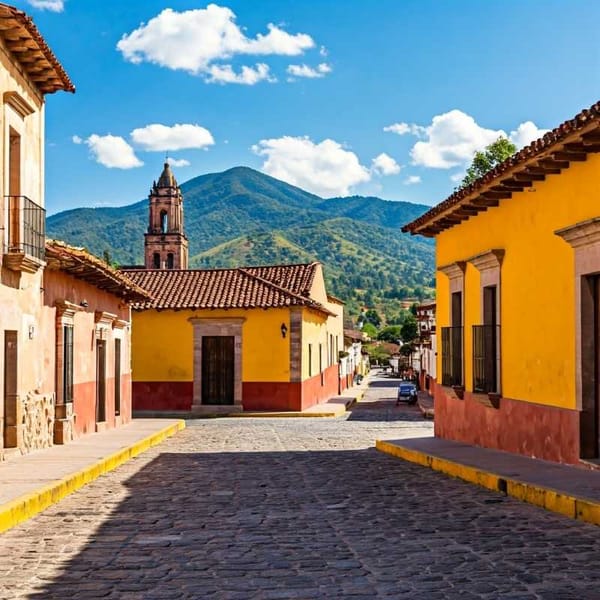Mexico's War on Crime and Achievements in Security
Mexico's President López Obrador highlights victories against crime, declining homicide rates, and health efforts. He faces political challenges but reaffirms a peaceful transition in his last government report.

In his morning conference, President Andrés Manuel López Obrador (AMLO) addressed a range of critical issues concerning crime, security, health, and political challenges in Mexico. The President emphasized his administration's commitment to fighting impunity and making strides in various sectors.
Zero Impunity in the Fight Against Crime
Authorities reported several significant victories in the battle against crime. From July 11 to 24, two individuals were extradited to the United States—one for murder and the other for aggravated homicide. Additionally, the arrest of alleged members of the notorious criminal group "La Familia Michoacana" was highlighted. The group was accused of abandoning human remains in the streets of Valle de Toluca, State of Mexico, causing widespread fear and concern among citizens.
Furthermore, Gabriel "N," an alleged rapist of a minor in Puebla, was successfully arrested, bringing some solace to victims of sexual violence.
In response to the recent fire tragedy in the Central de Abasto, authorities apprehended and sentenced nine individuals responsible for the incident that claimed almost a dozen lives.
Judges Favoring Criminals
Authorities exposed the actions of two judges, Roberto Antonio Domínguez Muñoz and Javier Martínez Castillo, who allegedly altered precautionary measures for two suspected kidnappers. This delay in justice for the alleged criminals has raised concerns about the integrity of the judicial system in Mexico. The case, which dates back to 2018 when the victim was rescued and the kidnappers arrested, remains unresolved.
Joint Security Efforts
The conference also covered the joint security efforts undertaken by federal elements across the country. These missions include support in finding missing persons, transferring fertilizers, and handling inmates. The report also highlighted significant seizures of over a thousand chargers and 587 vehicles in recent days. Moreover, authorities seized substantial quantities of illicit substances, such as seven thousand kilos of methamphetamine, 4.5 kilos of fentanyl, and more than three thousand kilos of marijuana in July.
In the ongoing battle against the illicit fuel market, authorities have successfully recovered 247,520 liters of hydrocarbons, further solidifying their commitment to tackling organized crime.
Health Measures and Risks
Health concerns also featured prominently in the conference. Undersecretary of Prevention and Health Promotion, Hugo López-Gatell Ramírez, addressed the risks associated with injectable drugs. He highlighted the dangers of using addictive substances introduced into the body via syringes or sharp instruments, emphasizing the risk of spreading viruses and diseases such as hepatitis C. Nevertheless, he reassured the public that Mexico is diligently implementing a national strategy to eliminate hepatitis C, offering free access to diagnostic tests and effective treatment regimens.
Vehicle Regularization and Social Initiatives
The Secretary of Security and Citizen Protection, Rosa Icela Rodríguez, reported on the successful regularisation of vehicles in 14 entities across the country. The program, scheduled to conclude on September 30, has been instrumental in generating resources for improving municipal infrastructure, such as paving streets.
In addition to security efforts, the Tianguis del Bienestar program continues to support communities across the country, with plans to visit municipalities in the Huasteca region between August and September.
Declining Homicide Rates and Political Challenges
President López Obrador also addressed the encouraging decline in homicides, with a 9.7% decrease in 2022 compared to the previous year. This progress reaffirms the administration's commitment to tackling the root causes of crime and delivering justice to the Mexican people.
However, the President acknowledged facing a political campaign against his administration, which he described as "perverse" and "extremely risky." He expressed concern over false information spread by media outlets linked to Salinas de Gortari, designed to undermine his government's efforts and destabilize the country.
International Relations and UNAM Autonomy
The President also touched on international relations, mentioning a trilateral meeting between the United States, Mexico, and Canada to address issues such as migration, arms trafficking, and drug control. He praised President Joe Biden for his support in lodging a complaint against the Texas Governor for violating bilateral agreements with the US government.
President López Obrador reiterated his commitment to global solidarity, expressing support for Foreign Minister Alicia Bárcena's statements against economic blockades in Cuba and Venezuela. He emphasized the need for collective action against drug trafficking and other global challenges.
Furthermore, the President expressed concern about the shift in the National Autonomous University of Mexico (UNAM) towards right-wing tendencies. He called on university students to protect the institution's autonomy and work towards meaningful societal change.
AMLO's Last Government Report and a Peaceful Transition
The President asserted that he plans to retire from politics after his last government report, which he intends to deliver in Campeche. He assured the public that he will pass the baton to a successor from the transformation movement, ensuring a peaceful and democratic transition of power.
President López Obrador's conference addressed pressing issues in Mexico, reaffirming his commitment to tackling crime, promoting health, and maintaining stability in the face of political challenges. The country's progress against impunity and the decline in homicide rates indicate positive strides in creating a safer and more prosperous nation.




